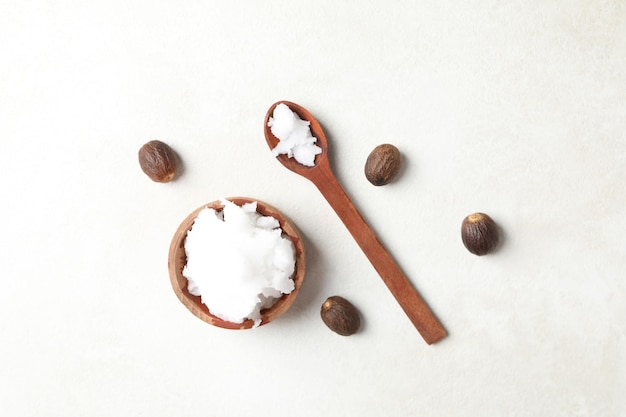
Castor oil is a natural, multi-purpose oil packed with nutrients like Vitamin E, ricinoleic acid, minerals, omega-6, and omega-9 fatty acids. While it’s widely known for its skincare benefits, fewer people are familiar with its impressive properties for hair health. Castor oil can enhance hair growth, strengthen strands, and improve overall scalp health due to its ability to relieve inflammation and provide deep nourishment.
The oil, extracted from castor seeds (Ricinus communis) through pressing, is typically colorless or pale yellow with a slight smell. Because of its thick and sticky texture, castor oil is often mixed with lighter oils for easier use. Its humectant quality helps hair and skin retain moisture, making it a go-to for hydration and repair. Many commercial hair care products include castor oil, but using pure castor oil as part of a DIY treatment is an excellent way to tackle various hair concerns effectively.
### Types of Castor Oil for Hair Health
There are three main types of castor oil commonly used for hair treatments:
#### 1. Organic or Cold-Pressed Castor Oil
This oil is extracted directly from castor seeds without heat, preserving its nutrients. The mechanical, non-chemical expeller pressing method results in a pale yellow oil. It’s ideal for people with dry or itchy scalps and curly hair, as it’s less alkaline and gentler than other types.
#### 2. Jamaican Black Castor Oil (JBCO)
This type is made by roasting castor seeds, pressing the oil, and adding the ashes from the roasting process, giving it a black color. JBCO is particularly beneficial for people with straight hair and healthy scalps because it penetrates deeply to cleanse and stimulate hair growth.
#### 3. Hydrogenated Castor Oil (Castor Wax)
Made by hydrogenating pure castor oil using a nickel catalyst, this type is odorless, brittle, and water-insoluble. It’s mainly used in cosmetics and industrial products like polishes and varnishes.
**Note**: Though organic castor oil and JBCO have similar nutritional benefits, JBCO’s higher alkalinity makes it more effective for clarifying and opening hair cuticles.
—
### How Castor Oil Can Benefit Your Hair
#### 1. Reduces Hair Fall
Hair fall is a common issue often caused by pollution, sun exposure, a poor diet, or stress. Castor oil’s ricinoleic acid boosts blood circulation in the scalp, nourishing hair follicles and reducing hair loss. It also protects the scalp from microbes that can contribute to hair thinning.
#### 2. Treats Dandruff
Castor oil’s antifungal, antibacterial, and antiviral properties combat the root causes of dandruff, like oily or irritated skin. Its ricinoleic acid balances the scalp’s pH levels, creating an environment that discourages dandruff growth.
#### 3. Promotes Hair Regrowth
If you’ve experienced significant hair loss, castor oil can help stimulate regrowth. Its omega-6 and -9 fatty acids deeply penetrate the hair shaft and roots, restoring strength and encouraging thicker, healthier growth.
#### 4. Serves as a Natural Conditioner
Castor oil works as a fantastic alternative to commercial conditioners. It penetrates your hair’s outer layer, fills in damaged keratin gaps, and helps lock in moisture. This results in smoother, shinier, and better-nourished hair.
#### 5. Reduces Split Ends
Split ends can occur due to a lack of nourishment in the scalp and hair shafts. Castor oil strengthens your hair’s tensile structure, filling in keratin gaps and making your strands less prone to breakage.
#### 6. Shields Hair from Damage
The fatty acids in castor oil form a protective layer over your hair, defending it from environmental damage like UV rays and pollutants. It also replenishes the natural oils in your hair, keeping it healthy, shiny, and strong.
#### 7. Deepens Hair Color
Regular use of castor oil can naturally darken hair and reduce premature graying. Its humectant quality keeps hair moisturized, which enhances its natural color and gives it a richer, darker appearance.
#### 8. Adds Shine
By sealing in moisture and forming a protective coating on the strands, castor oil provides a natural shine and radiance to hair that’s hard to replicate with commercial products.
—
### Tips for Using Castor Oil on Your Hair
#### How to Apply
You only need a small amount of castor oil for each treatment. Excessive use won’t provide faster results, so stick to a few drops applied to your scalp and hair.
#### When to Use It
Apply castor oil to damp (not wet) hair for the best results. Use a spray bottle to lightly mist your hair before applying the oil, as this helps lock in moisture.
#### Frequency
Applying castor oil once or twice a week is generally sufficient. Overuse won’t lead to significant changes, so moderation is key.
#### Leave It Overnight
For optimal results, leave the oil in your hair for several hours or overnight before rinsing it out with shampoo. A shower cap can help protect your bed linens.
#### Removal
Removing castor oil can be tricky due to its thickness. If shampooing alone doesn’t remove the residue, try using a conditioner to break down the oil. An egg mask can also help—apply whisked egg to your scalp, then rinse and shampoo as usual.
—
### Precautions
Before trying castor oil, always do a patch test on a small area of your skin to ensure you don’t have an allergic reaction. Although castor oil is generally safe, some people may experience mild irritation.
Overall, castor oil is a highly effective natural treatment for various hair concerns. Whether you’re dealing with hair loss, dandruff, or split ends, this versatile oil offers an affordable and chemical-free solution for healthy, beautiful hair.